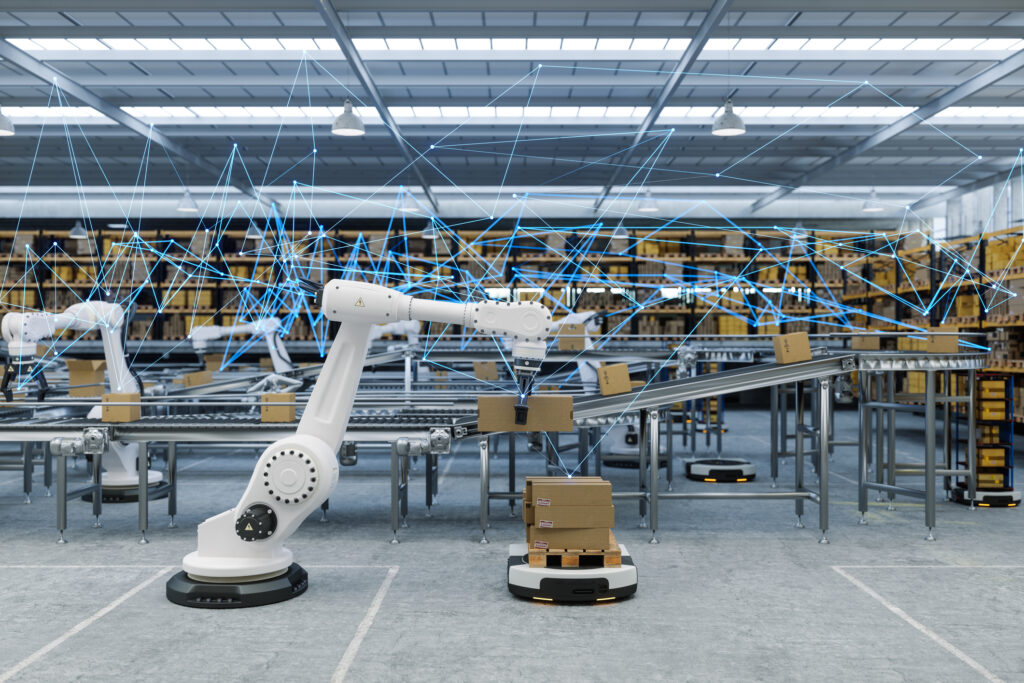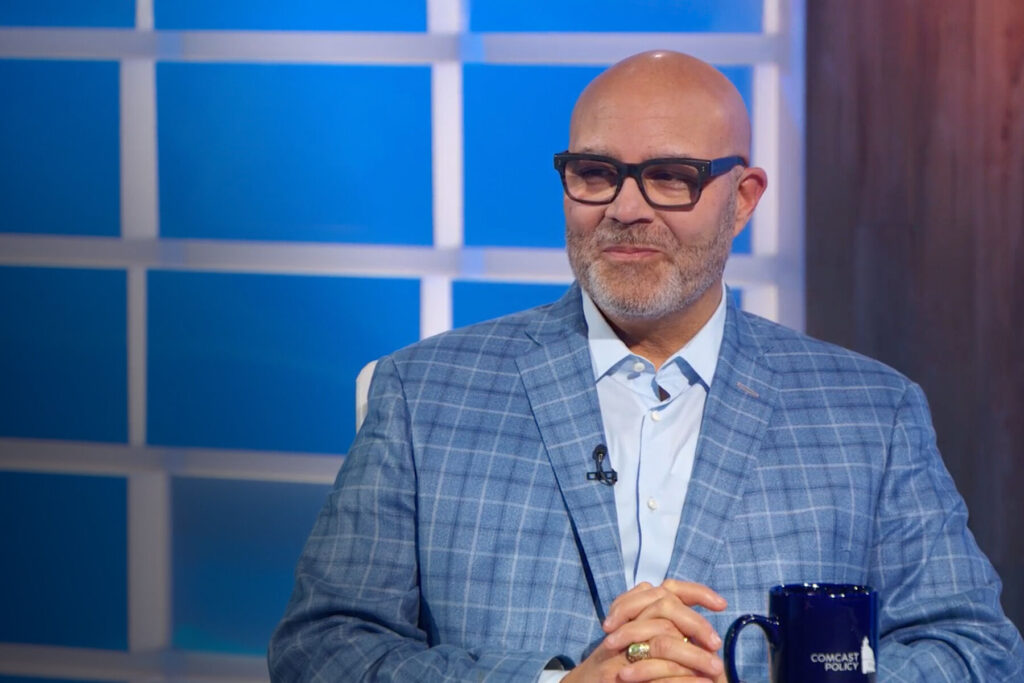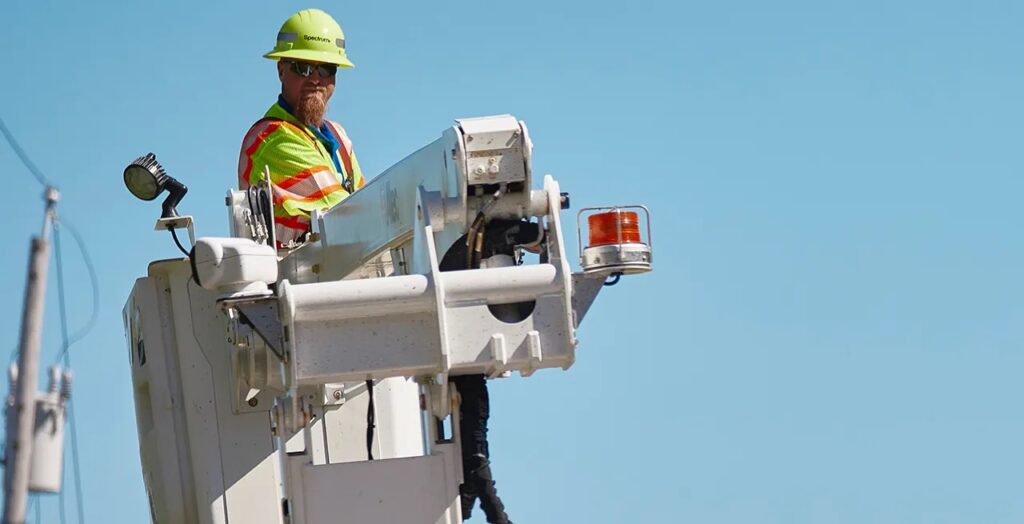NCTA welcomed its newest member, IBM, earlier this year, and never has there been a more fitting time to partner with a world leading technology company than the present. From the explosion in technology that the media landscape has experienced over the past decade to the incredible online transformations taking place for businesses and consumers during the current pandemic, IBM has played a huge role in moving Americans towards digital experiences.
In our latest ‘3 Questions’ series, NCTA interviewed Chris Lederer, IBM Vice President & Industry Leader for Media & Entertainment, to learn more about IBM’s legacy across the industry. Lederer heads the telco, media and technology arm of IBM in North America, and many of his unit’s clients include cable, technology, media, and advertising companies. Lederer shared a snapshot of the work IBM does with the cable industry to provide consumers with rich and optimal experiences, as well as the cutting edge services the organization is providing businesses and consumers during the pandemic to help them more efficiently operate and navigate the COVID-19 environment.

Can you explain how IBM works with the cable industry and the media sector to provide solutions for their business and their customers?
There are a couple of areas that we typically work with programmers and broadcasters on. One area is enterprise transformation. Inside that bucket includes programs around customer experience and cognitive care, where we help organizations bring AI and other technologies to customer service. Customers see chatbots or hear a new branded voice. But behind that, there are large and sophisticated sets of data that allow our clients to first and foremost provide a better customer service experience. And secondly, reduce cost in a significant way.
Then sometimes our customers in the cable space are looking for transformation programs that go broader. In that regard, how do they rethink a workflow? What kinds of platforms and technologies can be brought to that workflow to make it smart, to make it more efficient, to make it predictive and flexible in the cloud?
Another area of work that we do focuses on experiences for consumers. We cover live sports, live events, music, concerts, business conferences. We’ve got clients in all of those spaces. So many people know the IBM brand and some of the work that we do in support of sports, and the online experience that many people see for sporting events. We create websites, enable video streaming, and integrate AI and other proprietary technologies so that fans or viewers can have personalized experiences with a broadcaster’s content.
What shifts have you seen across the landscape caused by the COVID-19 climate?
We’re being asked by some organizations to help address increases in demand, raising questions like: How can we use technology to support spikes in customer calls? How can we look for opportunities to invest right now to enable new operating models given the new normal in terms of customer basis and demand? In other areas, companies are looking for more specific cost reduction programs.
In the beginning [of the pandemic], there was a window of time to get used to working at home and operating from home. Now we’re seeing a flurry in activity in managing the business. For example, we’re seeing the ‘how do I change my business model’ kinds of transformations being played right now. Inherent in this ‘work from home’ and this new work model is the acceleration of the ‘move to the cloud’ conversation.
And in our broadcast business, there have been disruptions in supply chain. Many clients are asking questions such as do we have the right composition of supply partners so that we’ve got a higher level of confidence that we won’t face a disruption the next time this comes around?
We’ve seen an acceleration to digital. Everything from all of our Zoom and WebEx conferences to some acceleration towards OTT to all of the creation and delivery that’s going to be done more virtually and digitally, versus having folks in the office. I think very broadly, we’re expecting an acceleration towards digital workflow and digital business models.
How else is IBM using its large influence, technology platforms, and resources to help with the fight against COVID-19?
We’ve made numerous efforts to help with the COVID-19 fight in many areas. IBM has supported the presidential task force by providing our super computing capabilities to address their analytic needs. Then there is the work we’ve done within the Weather Channel specifically. Information has been made public through the Weather Channel, which offers a very granular analysis county by county on the virus to hopefully help folks stay safe. Then the other one that comes to mind is our media and concert sponsorships. One example was the One World: Together At Home [virtual concert], and IBM was a big sponsor. And IBM is working with many clients to supply them with computers, or to run their internal infrastructure.
Our work has also ranged from helping banks run their financial statements, to supporting critical frontline healthcare workers with technology and information. So IBM has a core group of employees who are essentially on the front lines or supporting mission critical kinds of clients in the market. And a lot of this turns into day-to-day triage with our clients and everything that we’re trying to do together.









